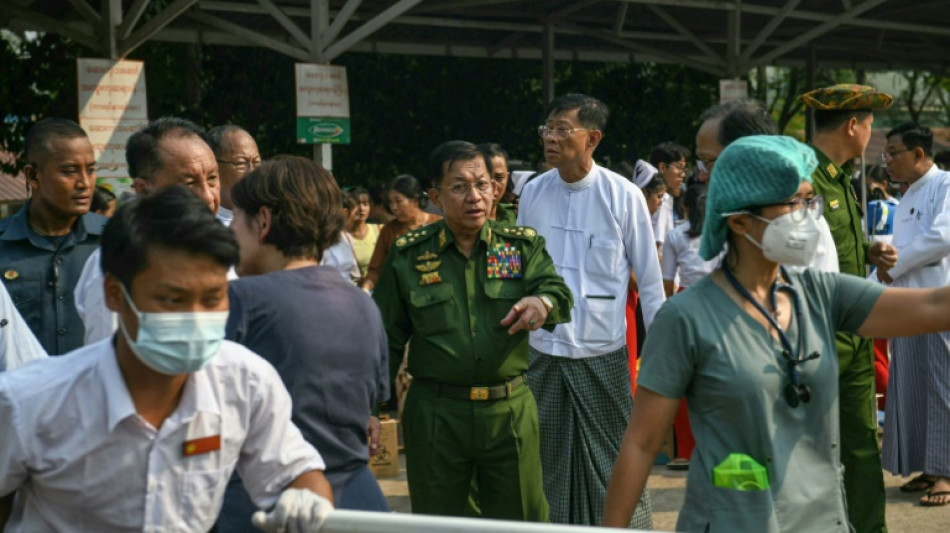
-
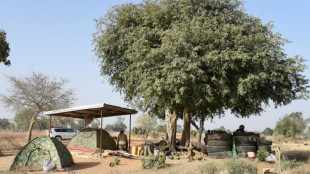 Togo tight-lipped as Burkina jihadists infiltrate north
Togo tight-lipped as Burkina jihadists infiltrate north
-
Survivors claw through rubble after deadly Pakistan cloudburst
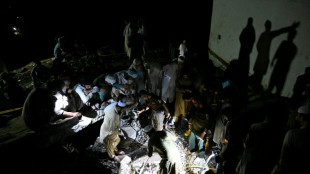
-
 South Africa quick Rabada out of Australia ODI series with injury
South Africa quick Rabada out of Australia ODI series with injury
-
Air Canada flight attendants vow to defy back-to-work order as strike talks resume
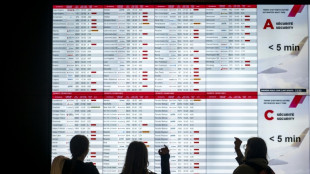
-
 'Call of Duty' to fire starting gun at Gamescom trade show
'Call of Duty' to fire starting gun at Gamescom trade show
-
UN says record 383 aid workers killed in 2024
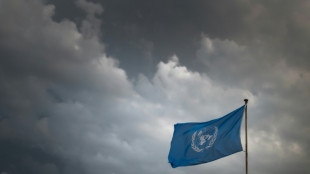
-
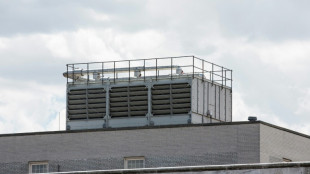 NYC Legionnaires' disease outbreak kills 5
NYC Legionnaires' disease outbreak kills 5
-
Asian markets cautious after Zelensky-Trump talks

-
 Home hero Piastri to have Australian F1 grandstand named after him
Home hero Piastri to have Australian F1 grandstand named after him
-
Maduro says mobilizing millions of militia after US 'threats'

-
 HK scientist puts hope in nest boxes to save endangered cockatoos
HK scientist puts hope in nest boxes to save endangered cockatoos
-
Swiatek beats Paolini to clinch WTA Cincinnati Open title

-
 Brazil's top court rules US laws do not apply to its territory
Brazil's top court rules US laws do not apply to its territory
-
Suits you: 'Fabulous' Zelensky outfit wows Trump

-
 Pro-Trump outlet to pay $67 mn in voting defamation case
Pro-Trump outlet to pay $67 mn in voting defamation case
-
Downton Abbey fans pay homage to 'beautiful' props before finale

-
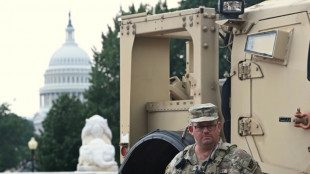 Republican-led states sending hundreds of troops to US capital
Republican-led states sending hundreds of troops to US capital
-
Putin and Zelensky set for peace summit after Trump talks
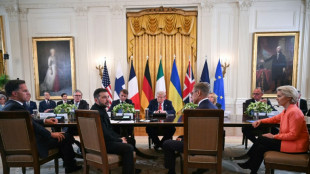
-
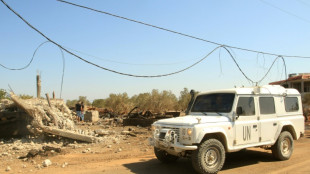 UN debates future withdrawal of Lebanon peacekeeping force
UN debates future withdrawal of Lebanon peacekeeping force
-
Trump says arranging Putin-Zelensky peace summit
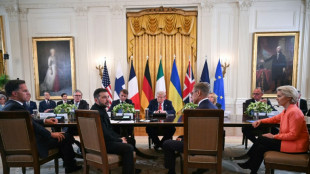
-
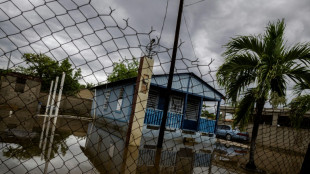 Hurricane Erin douses Caribbean, menaces US coast
Hurricane Erin douses Caribbean, menaces US coast
-
Sinner vows to play US Open after Cincy retirement

-
 'Ketamine Queen' dealer to plead guilty over Matthew Perry death
'Ketamine Queen' dealer to plead guilty over Matthew Perry death
-
Leeds beat Everton for perfect start to Premier League return

-
 'Ketamine Queen' to plead guilty over drugs that killed Matthew Perry
'Ketamine Queen' to plead guilty over drugs that killed Matthew Perry
-
Guirassy sends struggling Dortmund past Essen in German Cup

-
 Stocks under pressure as Zelensky-Trump talks underway
Stocks under pressure as Zelensky-Trump talks underway
-
Alcaraz wins Cincinnati Open as Sinner retires

-
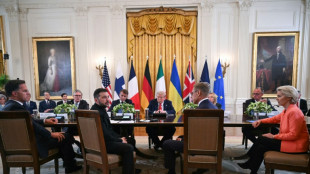 Trump floats Ukraine security pledges in talks with Zelensky and Europeans
Trump floats Ukraine security pledges in talks with Zelensky and Europeans
-
Doak joins Bournemouth as Liverpool exodus grows

-
 Excessive force used against LA protesters: rights group
Excessive force used against LA protesters: rights group
-
Panama hopes to secure return of US banana giant Chiquita
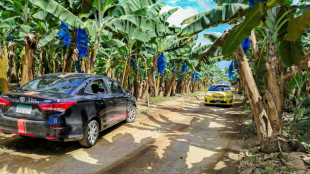
-
 'Things will improve': Bolivians look forward to right's return
'Things will improve': Bolivians look forward to right's return
-
Trump welcomes Zelensky with fresh optimism on peace deal

-
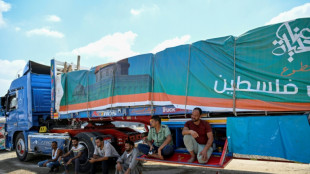 Israeli controls choke Gaza relief at Egypt border, say aid workers
Israeli controls choke Gaza relief at Egypt border, say aid workers
-
Air Canada flight attendants vow to defy latest back-to-work order
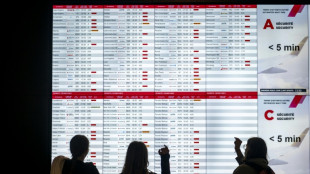
-
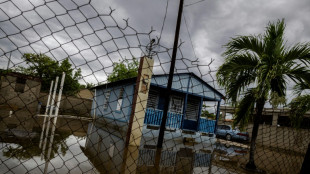 Hurricane Erin drenches Caribbean islands, threatens US coast
Hurricane Erin drenches Caribbean islands, threatens US coast
-
Europeans arrive for high-stakes Trump and Zelensky talks

-
 Trump, Zelensky and Europeans meet in bid to resolve split over Russia
Trump, Zelensky and Europeans meet in bid to resolve split over Russia
-
Hamas accepts new Gaza truce plan: Hamas official
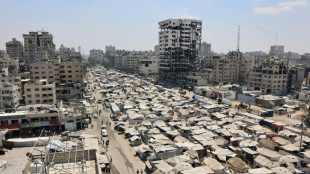
-
 Stocks under pressure ahead of Zelensky-Trump talks
Stocks under pressure ahead of Zelensky-Trump talks
-
Russian attacks kill 14 in Ukraine ahead of Trump-Zelensky talks
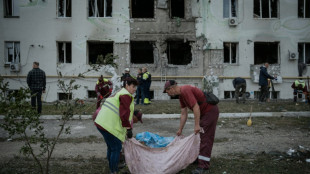
-
 Lassana Diarra seeks 65 mn euros from FIFA and Belgian FA in transfer case
Lassana Diarra seeks 65 mn euros from FIFA and Belgian FA in transfer case
-
Air Canada flight attendants face new pressure to end strike
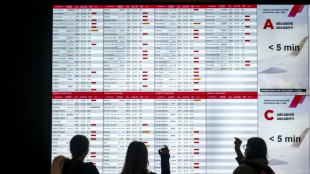
-
 Alonso says 'no excuses' as Real Madrid prepare for La Liga opener
Alonso says 'no excuses' as Real Madrid prepare for La Liga opener
-
Deadly wildfires rage across Spain as record area of land burnt
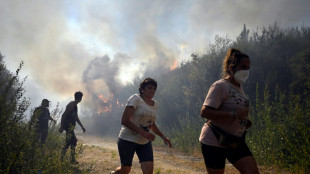
-
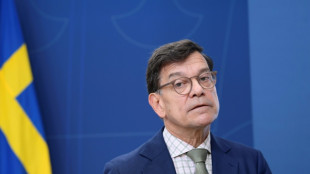 Swedish ex-govt adviser goes on trial over mislaid documents
Swedish ex-govt adviser goes on trial over mislaid documents
-
Injured Springboks captain Kolisi out for four weeks

-
 Irish literary star Sally Rooney pledges UK TV fees to banned pro-Palestine group
Irish literary star Sally Rooney pledges UK TV fees to banned pro-Palestine group
-
Stocks mixed ahead of Trump-Zelensky talks


Myanmar quake: a nation unprepared for disaster
Ravaged by four years of civil war, Myanmar is ill-prepared to cope with the destruction brought by Friday's massive earthquake.
The 7.7-magnitude quake that struck central Myanmar has killed more than 1,600 people and destroyed thousands of homes.
But the bloody conflict sparked by the 2021 military coup has brought the country's infrastructure, healthcare system and power network to their knees.
Here are some of the challenges facing relief efforts in Myanmar:
- Humanitarian crisis -
The United Nations and aid agencies have warned that millions were already facing a dire humanitarian crisis before the quake, and are now in urgent need of yet more aid.
Much of the country was already plagued by a punishing mix of conflict, poverty and instability after the civil war that left 3.5 million people displaced and smashed the economy.
"We have estimated that 19.9 million people are in need of humanitarian assistance, and this is just before the earthquake," said UN humanitarian coordinator in Myanmar Marcoluigi Corsi.
"The situation will be further aggravated."
Before the quake, the World Food Programme (WFP) said more than 15 million out of a population of 51 million were unable to meet their daily food needs.
Just two days after the quake, the UN said the aid effort was being hampered by a severe lack of medical supplies, while rescuers on the ground have pleaded for more equipment to comb ruined buildings for survivors.
The quake also struck Myanmar at a time when US President Donald Trump has slashed jobs and funding to Washington's foreign aid agency.
Trump has promised US help but one million civilians in Myanmar face WFP aid cuts after he took an axe to the US Agency for International Development.
Countries around the world have begun sending rescue teams and aid shipments.
- Junta rule -
The junta, led by General Min Aung Hlaing, has lost control of large parts of Myanmar throughout the conflict, though it remains in charge of major cities including Mandalay -- the closest to the quake epicentre and worst hit.
But many civil servants chose to switch sides following the military coup and join resistance to the junta.
This loss of personnel has further weakened an already antiquated civil administration, making the management and distribution of relief efforts harder.
In a sign of the enormity of the disaster -- and perhaps in a tacit admission of the state's inability to respond -- Min Aung Hlaing issued a rare appeal for foreign aid on Friday.
This marked a major shift from previous military rulers who shunned all international assistance.
Poverty is rampant, the economy shattered, and international sanctions combined with the expense of fighting the civil war have drained the junta's coffers.
- Splintered control -
Much of Myanmar is controlled by a shifting patchwork of junta forces, ethnic armed groups and pro-democracy partisans.
The complex mosaic of control on the ground, often involving competing groups with different agendas, may further frustrate efforts to move relief resources to where they are needed around the country.
Sagaing city -- near the quake's epicentre -- has seen some of the heaviest fighting between junta forces and armed resistance groups.
Ethnic armed groups, border militias and the military have all been vying for control of local resources, spurring fears there will be a similar tussle for aid.
- Poor infrastructure -
Myanmar's infrastructure and medical system have been ravaged by the civil war.
The junta has bombed hospitals in rebel-held areas and many doctors have abandoned government medical facilities to join the rebellion.
The UN has said hospitals in Mandalay, Magway and the capital Naypyidaw "are struggling to cope with the influx of people injured".
The country was already beset by phone and internet blackouts but the quake has further hurt communications and the ability to direct aid to the most in need.
Internet communications in Mandalay were patchy and land and air routes severely disrupted after the quake buckled roads.
With many houses collapsed, the UN and other NGOs say solutions are needed for the many left homeless.
B.Khalifa--SF-PST
